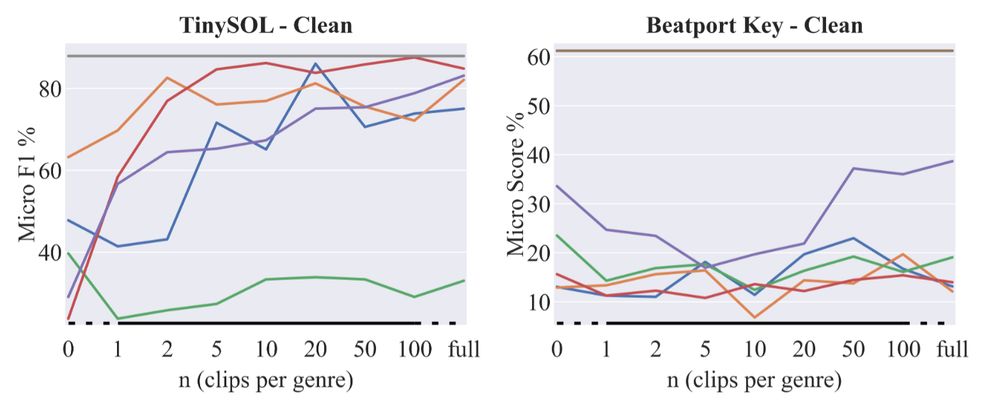
I’ll be at IJCNN 2025 in Rome in a month to present this - see you there!
I’ll be at IJCNN 2025 in Rome in a month to present this - see you there!
paper link: tinyurl.com/4seckd2c

paper link: tinyurl.com/4seckd2c
(MusiCNN 🟠, VGG 🔵, AST 🟢, CLMR 🔴, TMAE 🟣, MFCC 🩶)

(MusiCNN 🟠, VGG 🔵, AST 🟢, CLMR 🔴, TMAE 🟣, MFCC 🩶)
(MFCCs 🩶, Chroma 🤎)

(MFCCs 🩶, Chroma 🤎)
(MusiCNN 🟠, VGG 🔵)

(MusiCNN 🟠, VGG 🔵)
(MusiCNN 🟠, VGG 🔵, AST 🟢, CLMR 🔴, TMAE 🟣, MFCC 🩶)

(MusiCNN 🟠, VGG 🔵, AST 🟢, CLMR 🔴, TMAE 🟣, MFCC 🩶)


